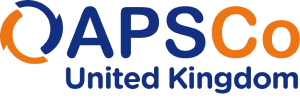How to Transition into a Career in Project Controls: A Strategic Guide for Industry Professionals
Making a career switch to project controls opens up exciting opportunities to work on meaningful projects that shape our world. Project controls professionals play a key role in keeping projects on track, managing costs and schedules across industries like construction, engineering and technology.

A career in project controls typically starts with an entry-level position as a trainee or apprentice, where newcomers learn core skills in cost management, scheduling, risk analysis and progress reporting. Many successful project controllers begin with field experience as quantity surveyors, tradespersons or site supervisors before moving into controls roles.
The path offers multiple routes for growth, with professionals able to specialise in areas like cost control, planning, risk management or take on broader project controls management positions. The varied nature of the work means each day brings fresh challenges and chances to make real impacts on project outcomes.
Discovering a Career in Project Controls

Project controls professionals track costs, schedules and resources to help deliver successful projects. This specialised field offers multiple career paths and opportunities to work on major infrastructure and construction initiatives.
Understanding Project Controls
Project controls encompasses the tools and techniques used to monitor project performance. These specialists track budgets, create schedules, analyse risks and report progress to stakeholders.
The role requires strong analytical skills and attention to detail. Professionals use specialised software to create detailed project schedules and cost forecasts.
Project controls teams gather data from various sources to provide accurate project status updates. They identify potential problems early and recommend solutions to keep projects on track.
Key Roles and Job Titles
Common job titles in project controls include:
- Project Controls Engineer
- Cost Controller
- Planning Engineer
- Schedule Analyst
- Risk Manager
Entry-level positions often start as project controls trainees or apprentices. With experience, professionals can advance to senior roles or specialise in specific areas like cost management or risk analysis.
Many organisations offer structured career paths from junior to lead positions. Training and certifications help professionals progress to more senior roles.
The Importance of Project Controls in Mega-Scale Projects
Mega-scale projects require robust project controls to manage massive budgets and complex schedules. These projects often span multiple years and involve thousands of workers.
Project controls teams track millions in spending across numerous contractors and suppliers. They maintain master schedules coordinating hundreds of interconnected activities.
Regular reporting helps leadership teams make informed decisions about resource allocation and project strategy. Early warning systems flag potential delays or cost overruns before they impact project outcomes.
Clear documentation and change control processes help mega-projects stay within approved budgets and timeframes. Project controls professionals play a vital role in delivering these complex initiatives successfully.
Educational Pathways and Professional Development

A strong foundation in project controls requires a mix of formal education, industry certifications, and hands-on experience. Building knowledge across multiple disciplines helps professionals adapt to different sectors and advance their careers.
Essential Qualifications and Training
Many project controls professionals start with a bachelor’s degree in engineering, construction management, or business administration. Some universities offer specialised modules in project controls as part of their curriculum.
Professional training programmes provide practical skills in:
- Cost estimation and budgeting
- Schedule planning and analysis
- Risk management
- Earned value management
- Project documentation
Several training academies offer structured learning paths. The Project Academy delivers focused courses for beginners and experienced practitioners alike.
Certifications and Professional Bodies
Key professional certifications boost career prospects and validate expertise.
Notable certifications include:
- AACE International’s Certified Cost Professional (CCP)
- APM Project Management Qualification (PMQ)
- PMI Scheduling Professional (PMI-SP)
Professional bodies support ongoing development through:
- Mentoring programmes
- Technical workshops
- Industry conferences
- Networking events
Specialising in Industry Sectors
Different sectors require unique project controls approaches and tools.
Rail and Infrastructure:
- Network Rail certification programmes
- Specific scheduling software training
- Safety qualification requirements
Construction and Civil Engineering:
- Building Information Modelling (BIM) expertise
- Contract management skills
- Cost engineering certifications
Energy and Utilities:
- Risk analysis methods
- Regulatory compliance training
- Environmental impact assessment skills
Practical Skills and Technical Expertise

Successful project controls professionals need specific technical abilities and practical knowledge to manage complex projects effectively. A blend of analytical, organisational, and technological skills forms the foundation for excellence in this field.
Planning, Scheduling, and Cost Control
Project controls specialists must master detailed planning techniques and scheduling methodologies. They need to create and maintain work breakdown structures (WBS) that map out project activities in logical sequences.
Cost control requires expertise in earned value management (EVM) to track project performance. Professionals monitor key metrics like:
- Cost Performance Index (CPI)
- Schedule Performance Index (SPI)
- Estimate at Completion (EAC)
Strong mathematical and analytical abilities help in developing accurate cost estimates and budgets. Specialists must understand resource levelling and allocation to optimise project efficiency.
Risk Management and Forensic Analysis
Risk management involves identifying, assessing, and mitigating potential project threats. Professionals use quantitative and qualitative analysis methods to evaluate risks.
Key risk management activities include:
- Creating risk registers
- Performing Monte Carlo simulations
- Developing contingency plans
- Tracking mitigation strategies
Forensic analysis skills help identify root causes of delays and cost overruns. This involves examining project documentation, analysing performance data, and reconstructing event timelines.
Software Proficiency: Primavera P6 and Others
Proficiency in Primavera P6 is essential for creating and maintaining project schedules. Users must understand:
- Activity coding
- Resource loading
- Critical path analysis
- Baseline management
Knowledge of complementary software tools enhances effectiveness:
- Microsoft Project for schedule management
- Power BI for data visualisation
- Excel for cost analysis and reporting
- Risk analysis tools like @Risk
Regular training keeps skills current with software updates and new features.
Building Experience and Networking

Practical experience and professional connections form the foundation of a successful career transition into project controls. Strong relationships and hands-on practice create opportunities for growth and advancement in this field.
Gaining Hands-On Experience
Starting with small projects or supporting roles helps build essential project controls skills. Many professionals begin as project assistants or coordinators to learn the basics.
Take on volunteer projects in your current organisation to practice scheduling and cost tracking. These opportunities demonstrate initiative while building a portfolio of real-world experience.
Look for mentorship programmes where experienced project controls professionals can guide your development. A mentor provides valuable insights and helps avoid common pitfalls.
Key skills to develop:
- Cost estimation and budgeting
- Schedule development and monitoring
- Risk assessment
- Progress reporting
- Document control
The Role of Networking in Career Progression
Professional networking opens doors to job opportunities and valuable industry knowledge. LinkedIn serves as a powerful platform to connect with project controls specialists and join relevant groups.
Attend industry events, conferences and workshops to meet experienced professionals. These connections often lead to informal mentoring relationships and job referrals.
Join online forums and discussion groups focused on project controls. Active participation helps build visibility and demonstrates expertise.
Learning from Industry Associations
Professional associations provide structured learning paths and networking platforms. The Association for Project Management (APM) offers specialised training and certification programmes.
Members gain access to:
- Technical resources and publications
- Career development workshops
- Job boards and recruitment events
- Industry conferences
- Networking events
Project Controls professionals benefit from joining multiple associations to broaden their exposure and opportunities. Regular participation in association events accelerates professional growth.
Local chapters organise meetings and seminars that connect members with regional opportunities. These events create valuable face-to-face networking opportunities.
Planning the Future in Project Controls
Project controls professionals shape their careers through continuous growth and adaptation to new technologies and methodologies. A clear understanding of available paths and emerging trends helps create strong career progression.
Long-Term Career Paths and Opportunities
Project controls specialists often start as trainees or junior analysts before advancing to senior roles. Entry-level positions focus on scheduling, cost tracking, and basic reporting tasks.
Mid-level professionals take on more complex projects and mentor junior team members. Many progress to specialised roles like cost engineers or risk managers.
Senior positions include project controls manager, programme director, and head of delivery. These roles require deep technical knowledge and leadership skills.
Key progression paths:
- Cost Engineering → Senior Cost Engineer → Commercial Manager
- Schedule Analyst → Planning Manager → Programme Director
- Risk Analyst → Risk Manager → Head of Controls
The Evolving Landscape of Project Controls
Digital tools and data analytics drive modern project controls. Teams now use artificial intelligence for forecasting and automated reporting systems.
Remote work capabilities have changed how project controls teams operate. Virtual collaboration tools enable global team management and real-time data sharing.
Essential modern skills:
- Digital project management platforms
- Data visualisation tools
- Predictive analytics software
- Cloud-based collaboration systems
Remaining Adaptive and Embracing Change
Project controllers must stay current with industry certifications and new methodologies. Regular training in emerging technologies helps maintain career relevance.
Professional networks provide valuable insights into industry changes. Active participation in project control communities supports continuous learning.
Adaptation strategies:
- Quarterly skill assessments
- Technology workshops
- Industry conference attendance
- Peer knowledge sharing
- Professional certifications
Teams should develop flexible working practices. This approach helps manage unexpected project changes and new industry requirements.
Looking for a Career Change?
Check out our latest Job Listings

